第65章
Suppose, now, that in this matter nature had conformed to our wish and had given us that capacity of discernment or that enlightenment which we would gladly possess, or which some imagine they actually possess, what would in all probability be the consequence? Unless our whole nature were at the same time changed, our inclinations, which always have the first word, would first of all demand their own satisfaction, and, joined with rational reflection, the greatest possible and most lasting satisfaction, under the name of happiness;the moral law would afterwards speak, in order to keep them within their proper bounds, and even to subject them all to a higher end, which has no regard to inclination.But instead of the conflict that the moral disposition has now to carry on with the inclinations, in which, though after some defeats, moral strength of mind may be gradually acquired, God and eternity with their awful majesty would stand unceasingly before our eyes (for what we can prove perfectly is to us as certain as that of which we are assured by the sight of our eyes).Transgression of the law, would, no doubt, be avoided; what is commanded would be done; but the mental disposition, from which actions ought to proceed, cannot be infused by any command, and in this case the spur of action is ever active and external, so that reason has no need to exert itself in order to gather strength to resist the inclinations by a lively representation of the dignity of the law: hence most of the actions that conformed to the law would be done from fear, a few only from hope, and none at all from duty, and the moral worth of actions, on which alone in the eyes of supreme wisdom the worth of the person and even that of the world depends, would cease to exist.As long as the nature of man remains what it is, his conduct would thus be changed into mere mechanism, in which, as in a puppet-show, everything would gesticulate well, but there would be no life in the figures.Now, when it is quite otherwise with us, when with all the effort of our reason we have only a very obscure and doubtful view into the future, when the Governor of the world allows us only to conjecture his existence and his majesty, not to behold them or prove them clearly; and on the other hand, the moral law within us, without promising or threatening anything with certainty, demands of us disinterested respect; and only when this respect has become active and dominant, does it allow us by means of it a prospect into the world of the supersensible, and then only with weak glances: all this being so, there is room for true moral disposition, immediately devoted to the law, and a rational creature can become worthy of sharing in the summum bonum that corresponds to the worth of his person and not merely to his actions.Thus what the study of nature and of man teaches us sufficiently elsewhere may well be true here also; that the unsearchable wisdom by which we exist is not less worthy of admiration in what it has denied than in what it has granted.
SECOND PART.
Methodology of Pure Practical Reason.
By the methodology of pure practical reason we are not to understand the mode of proceeding with pure practical principles (whether in study or in exposition), with a view to a scientific knowledge of them, which alone is what is properly called method elsewhere in theoretical philosophy (for popular knowledge requires a manner, science a method, i.e., a process according to principles of reason by which alone the manifold of any branch of knowledge can become a system).On the contrary, by this methodology is understood the mode in which we can give the laws of pure practical reason access to the human mind and influence on its maxims, that is, by which we can make the objectively practical reason subjectively practical also.
Now it is clear enough that those determining principles of the will which alone make maxims properly moral and give them a moral worth, namely, the direct conception of the law and the objective necessity of obeying it as our duty, must be regarded as the proper springs of actions, since otherwise legality of actions might be produced, but not morality of character.But it is not so clear; on the contrary, it must at first sight seem to every one very improbable that even subjectively that exhibition of pure virtue can have more power over the human mind, and supply a far stronger spring even for effecting that legality of actions, and can produce more powerful resolutions to prefer the law, from pure respect for it, to every other consideration, than all the deceptive allurements of pleasure or of all that may be reckoned as happiness, or even than all threatenings of pain and misfortune.Nevertheless, this is actually the case, and if human nature were not so constituted, no mode of presenting the law by roundabout ways and indirect recommendations would ever produce morality of character.All would be simple hypocrisy; the law would be hated, or at least despised, while it was followed for the sake of one's own advantage.The letter of the law (legality) would be found in our actions, but not the spirit of it in our minds (morality);and as with all our efforts we could not quite free ourselves from reason in our judgement, we must inevitably appear in our own eyes worthless, depraved men, even though we should seek to compensate ourselves for this mortification before the inner tribunal, by enjoying the pleasure that a supposed natural or divine law might be imagined to have connected with it a sort of police machinery, regulating its operations by what was done without troubling itself about the motives for doing it.